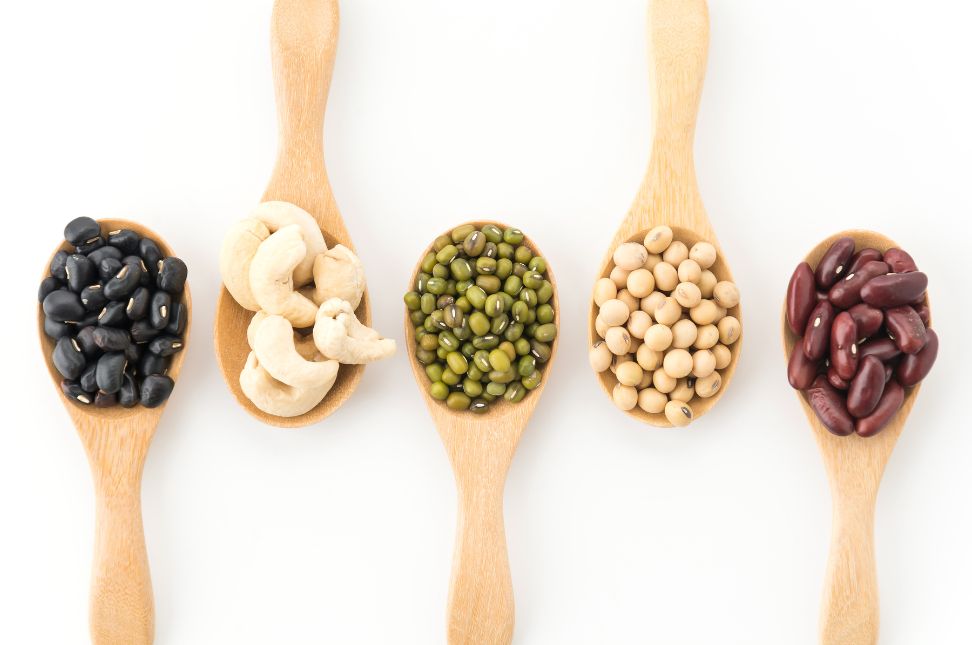As more people shift towards plant-based diets, understanding plant-based protein sources has become increasingly important. These sources not only support a balanced diet but also contribute to overall health and environmental sustainability. Whether you’re vegan, vegetarian, or simply looking to reduce your meat intake, incorporating a variety of plant-based proteins can help meet your nutritional needs.
Why Choose Plant-Based Protein Sources?
Plant-based protein sources offer numerous benefits. They are typically lower in saturated fats and cholesterol than animal proteins, reducing the risk of heart disease and promoting better overall health. Additionally, they provide essential nutrients such as fiber, vitamins, and minerals, which are often lacking in animal-based diets. Moreover, choosing plant-based proteins contributes to environmental sustainability by reducing the carbon footprint associated with meat production.
Top Plant-Based Protein Sources
1. Legumes
Legumes, including beans, lentils, and peas, are some of the most popular plant-based protein sources. They are not only rich in protein but also high in fiber, making them a great option for digestive health. For example, one cup of cooked lentils contains around 18 grams of protein, making it a perfect addition to soups, salads, and stews.
2. Quinoa
Quinoa is a unique plant-based protein source because it is a complete protein, meaning it contains all nine essential amino acids that the body cannot produce on its own. With about 8 grams of protein per cup, quinoa is an excellent alternative to rice or pasta and can be used in a variety of dishes.
3. Tofu and Tempeh
Tofu and tempeh, both made from soybeans, are versatile plant-based protein sources. Tofu, which contains about 10 grams of protein per half-cup, can be used in a variety of dishes, from stir-fries to smoothies. Tempeh, on the other hand, is fermented and has a firmer texture, making it a great meat substitute with approximately 15 grams of protein per half-cup.
4. Nuts and Seeds
Nuts and seeds, such as almonds, chia seeds, and hemp seeds, are convenient and nutrient-dense plant-based protein sources. A quarter-cup of almonds provides about 7 grams of protein, while chia seeds offer around 5 grams of protein per ounce. These can be added to smoothies, oatmeal, or salads for an extra protein boost.
5. Seitan
Seitan, also known as wheat gluten, is one of the highest plant-based protein sources, offering around 21 grams of protein per 3-ounce serving. Its texture closely resembles meat, making it a popular choice among vegetarians and vegans. Seitan can be grilled, sautéed, or baked, and is a versatile addition to any meal.
6. Edamame
Edamame, or young soybeans, are another excellent plant-based protein source. One cup of cooked edamame provides about 18 grams of protein. These can be enjoyed as a snack or added to salads and stir-fries for a nutrient-rich addition.
7. Chickpeas
Chickpeas, also known as garbanzo beans, are a staple in many plant-based diets. They contain about 15 grams of protein per cup and are incredibly versatile. Chickpeas can be roasted for a crunchy snack, blended into hummus, or added to soups and salads as a hearty ingredient.

Combining Plant-Based Proteins for Complete Nutrition
While some plant-based protein sources may not contain all essential amino acids, combining different sources can help you achieve a complete protein profile. For example, pairing rice with beans or whole-grain bread with peanut butter ensures you get all the amino acids your body needs. This concept of protein combining is particularly important for those following a strict vegan diet.
Tips for Incorporating Plant-Based Protein into Your Diet
- Start Slow: If you’re new to plant-based eating, start by incorporating one or two plant-based protein sources into your meals each week. Gradually increase the variety as you become more comfortable with the options.
- Experiment with Recipes: Explore new recipes that highlight plant-based protein sources. Try different cuisines, such as Indian or Middle Eastern, which often feature legumes, lentils, and chickpeas.
- Keep Snacks Handy: Having plant-based protein snacks like nuts, seeds, or roasted chickpeas readily available can help you maintain your protein intake throughout the day.
- Meal Prep: Preparing meals in advance with plant-based protein sources can save time and ensure you have nutritious options on hand.
Conclusion
Incorporating plant-based protein sources into your diet is a powerful way to improve your health and contribute to environmental sustainability. From legumes to quinoa and tofu, there are numerous delicious and versatile options to choose from. By exploring different combinations and recipes, you can enjoy a diverse and balanced diet that meets your protein needs.




